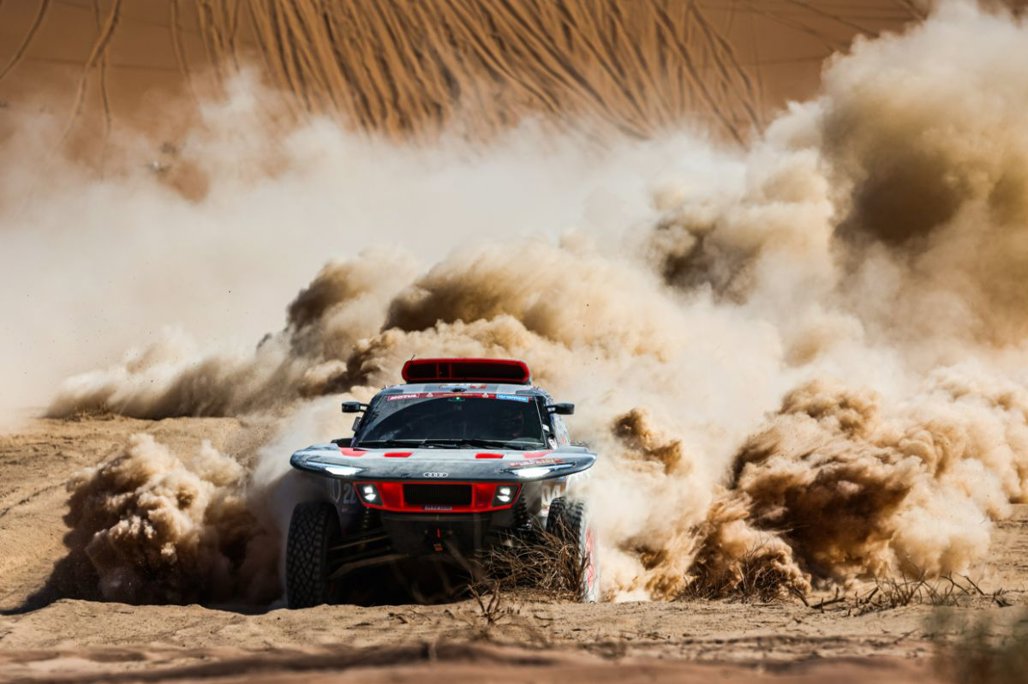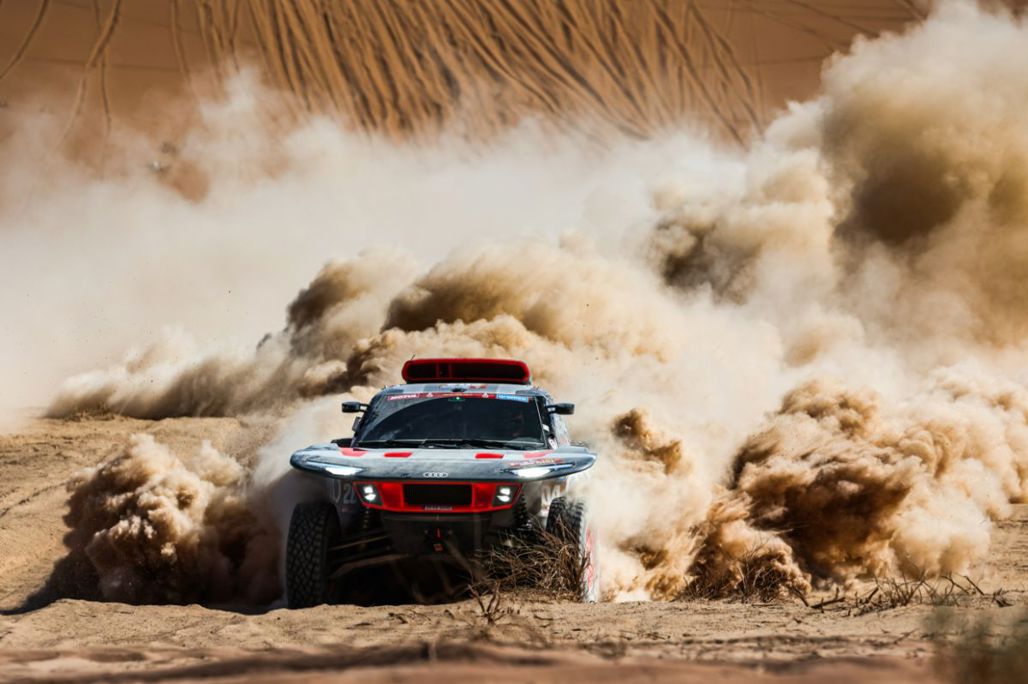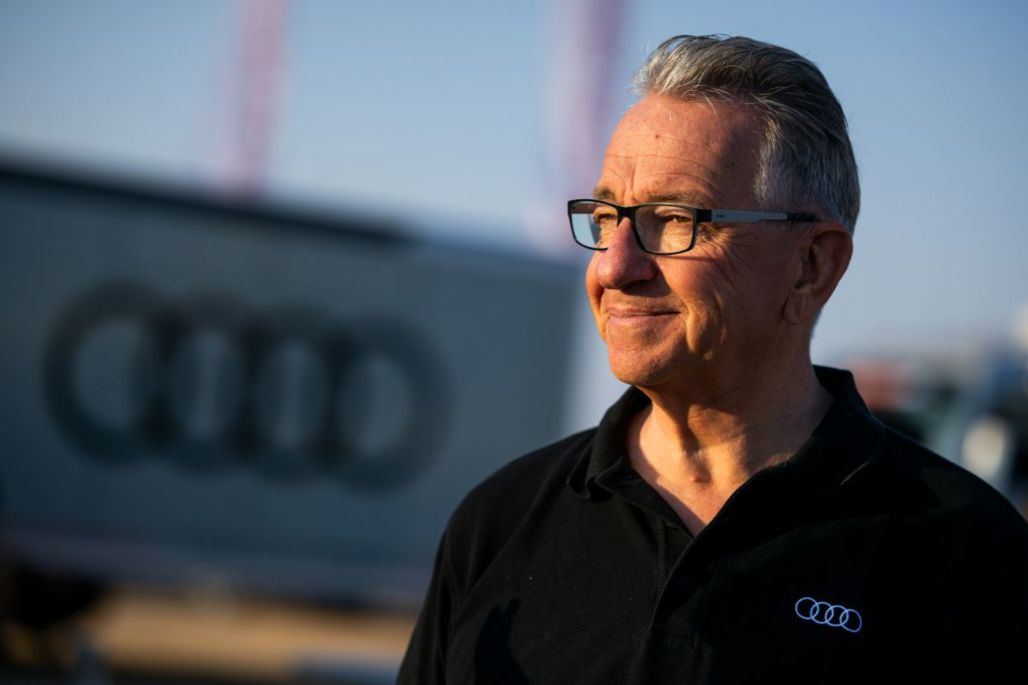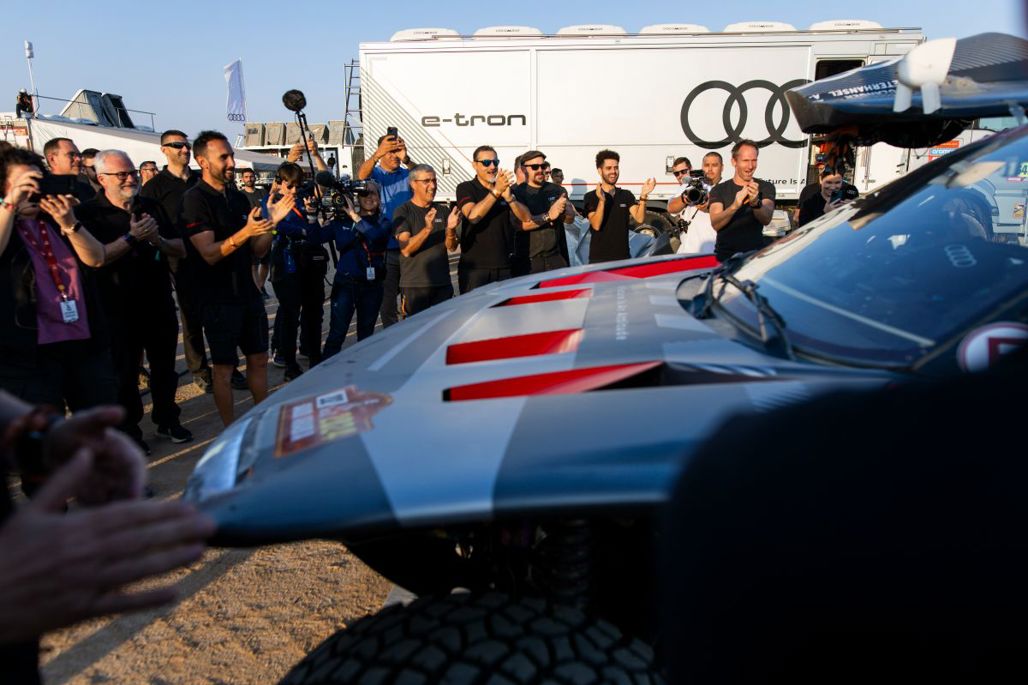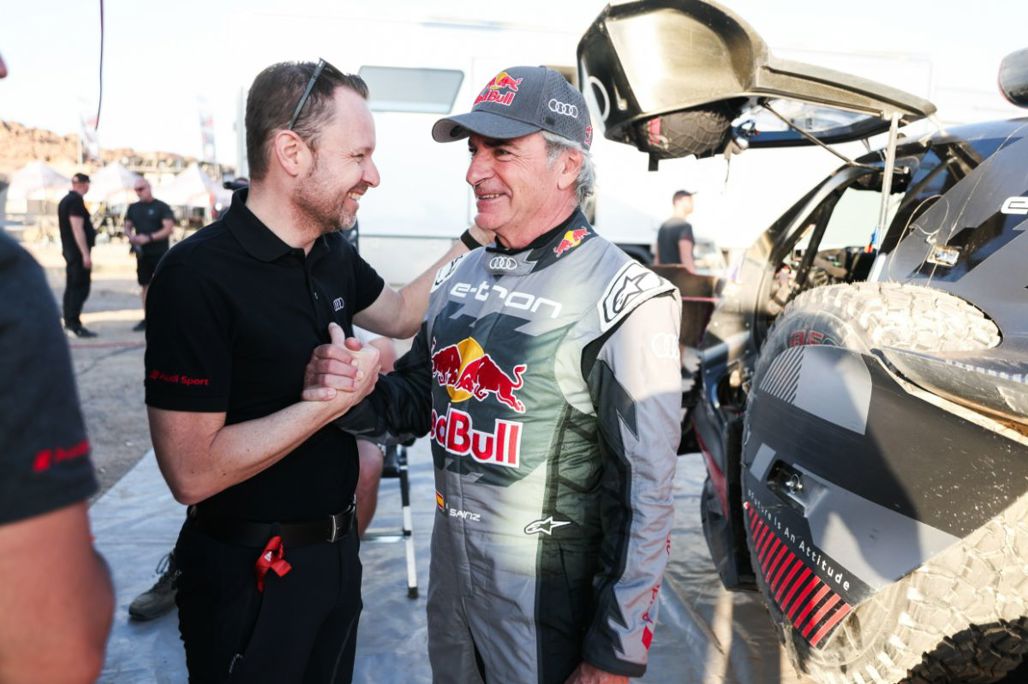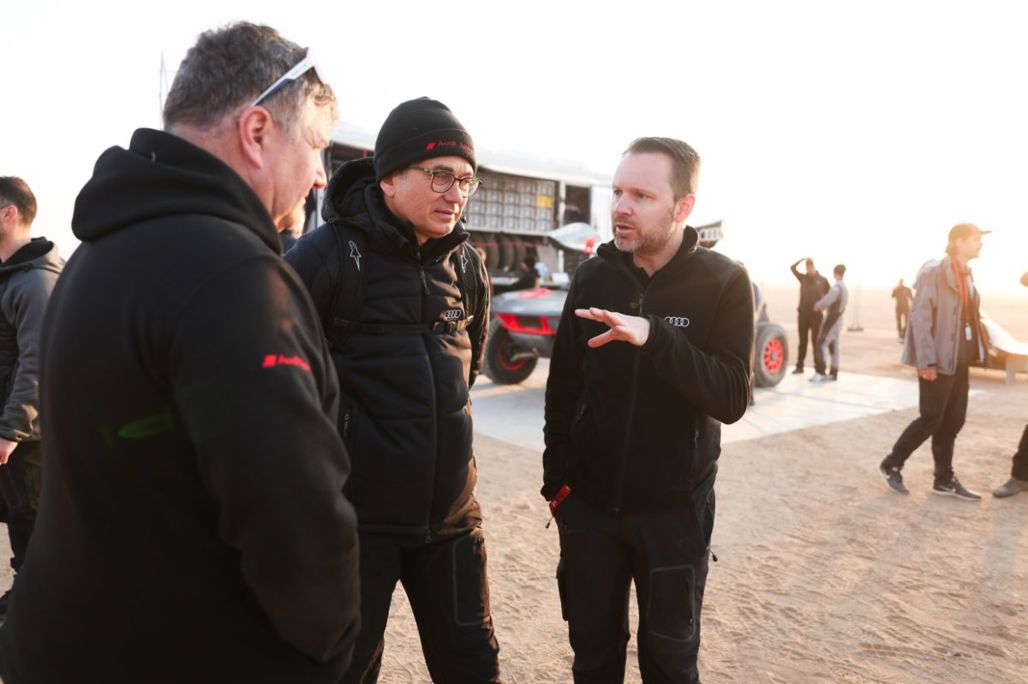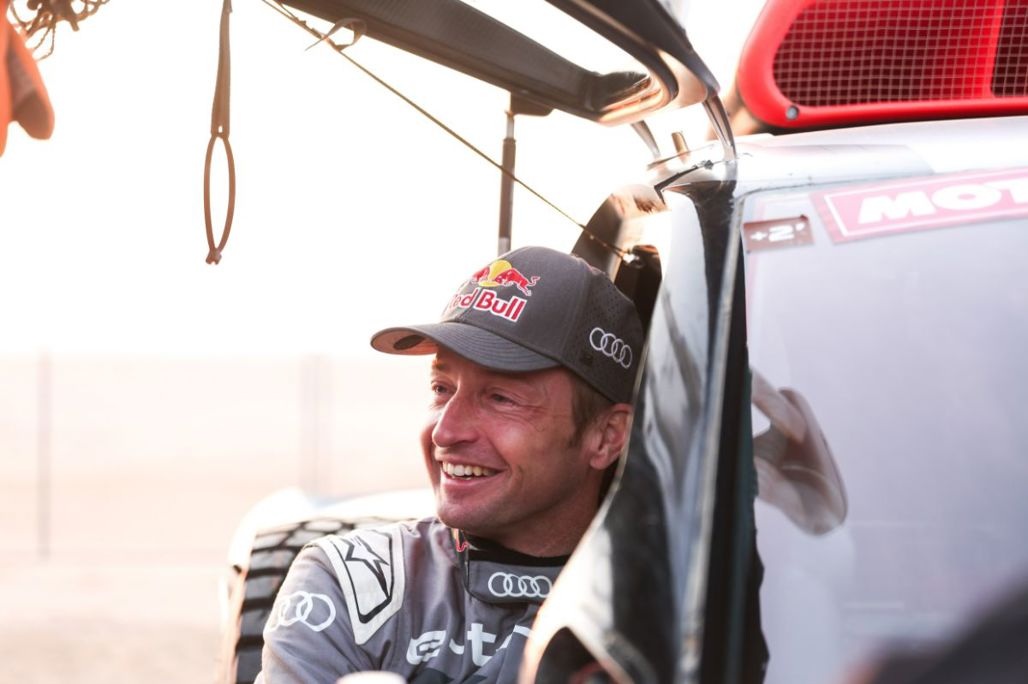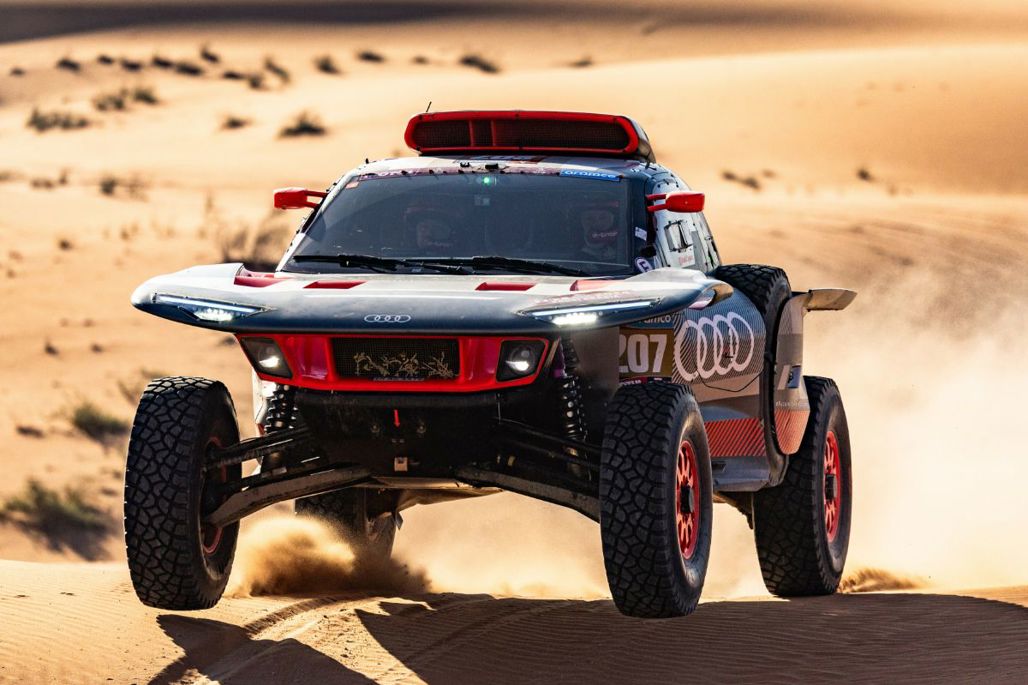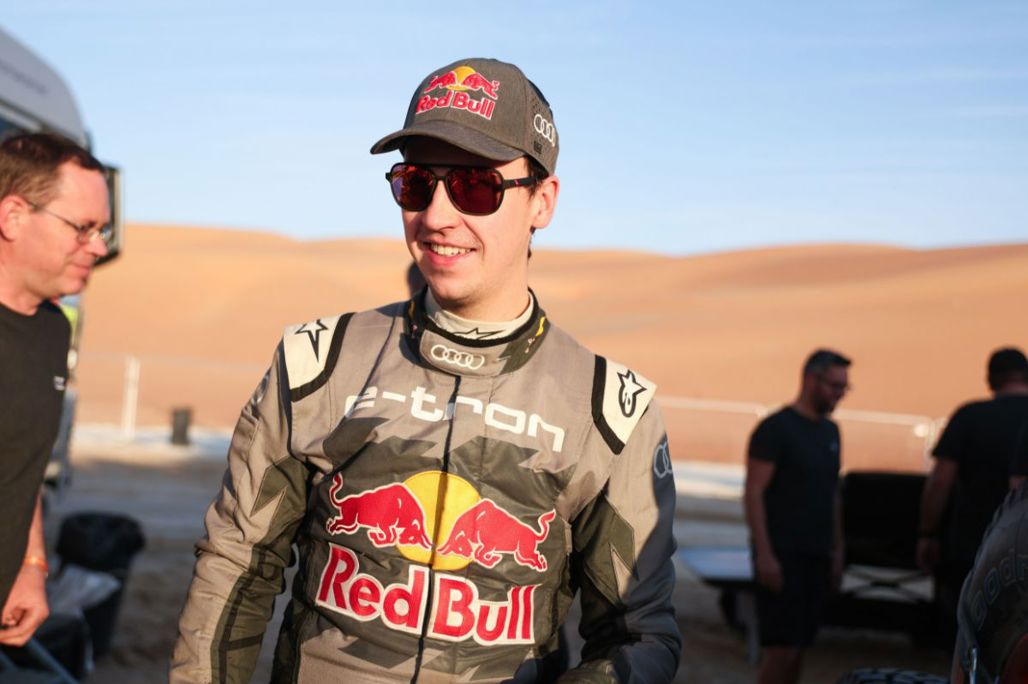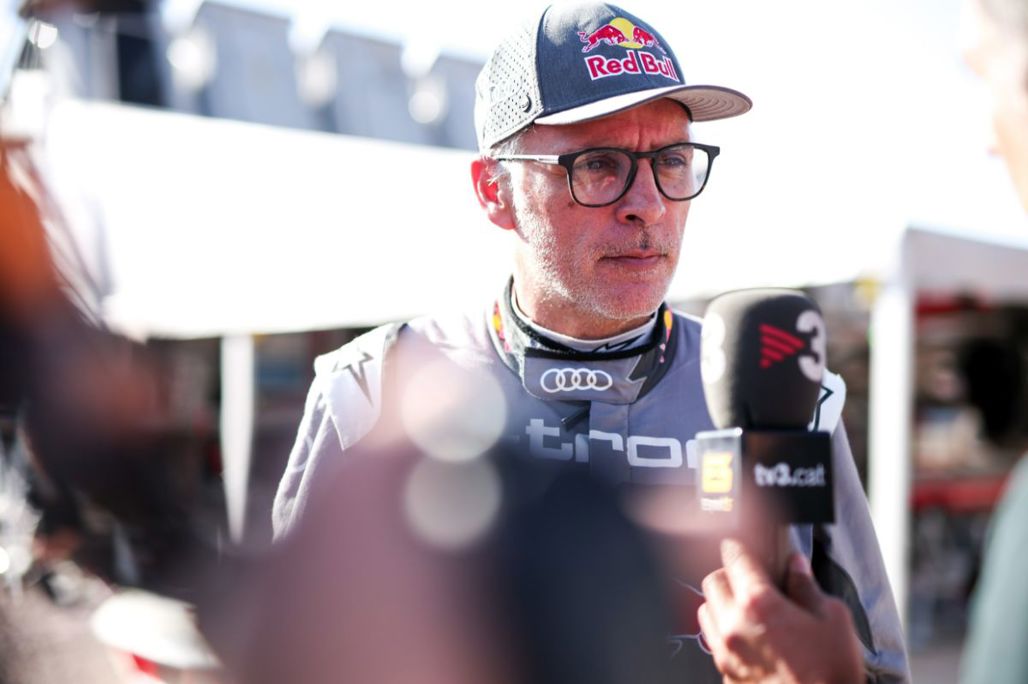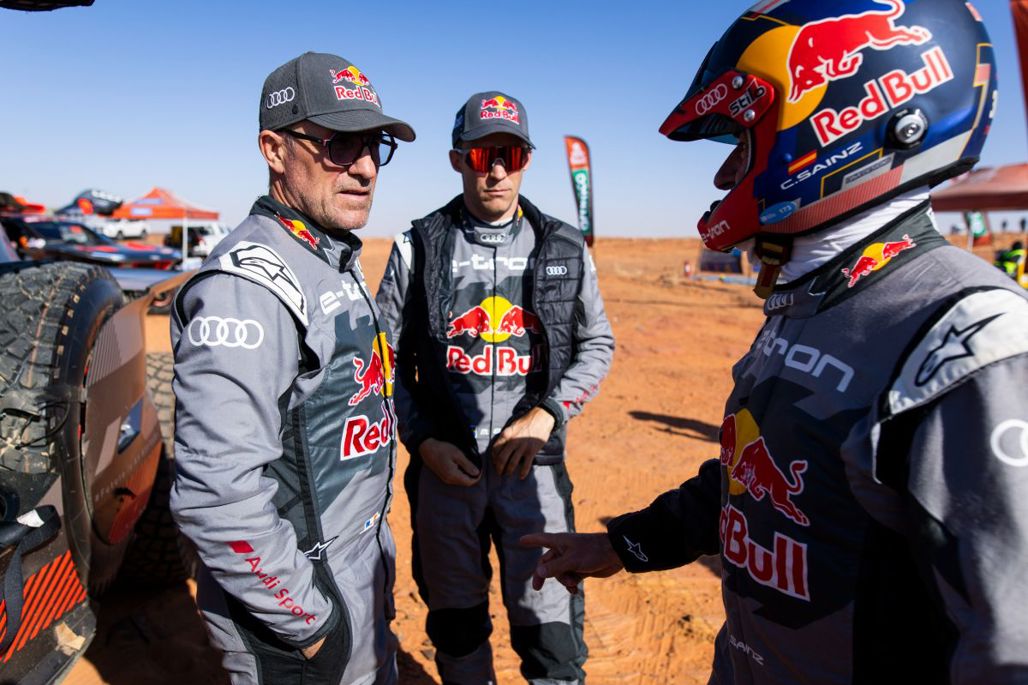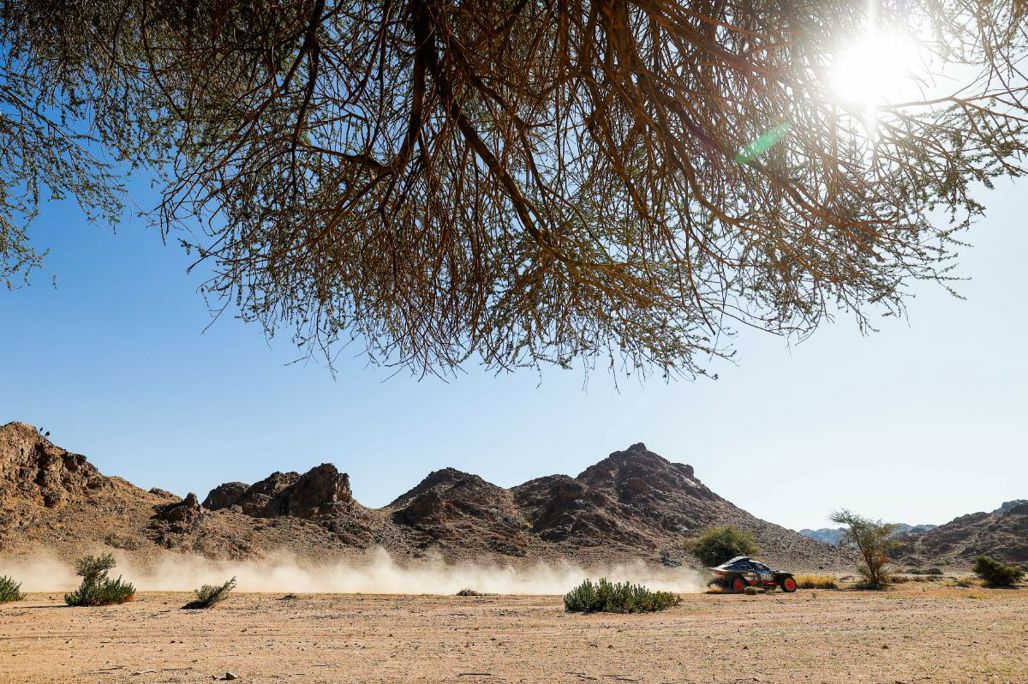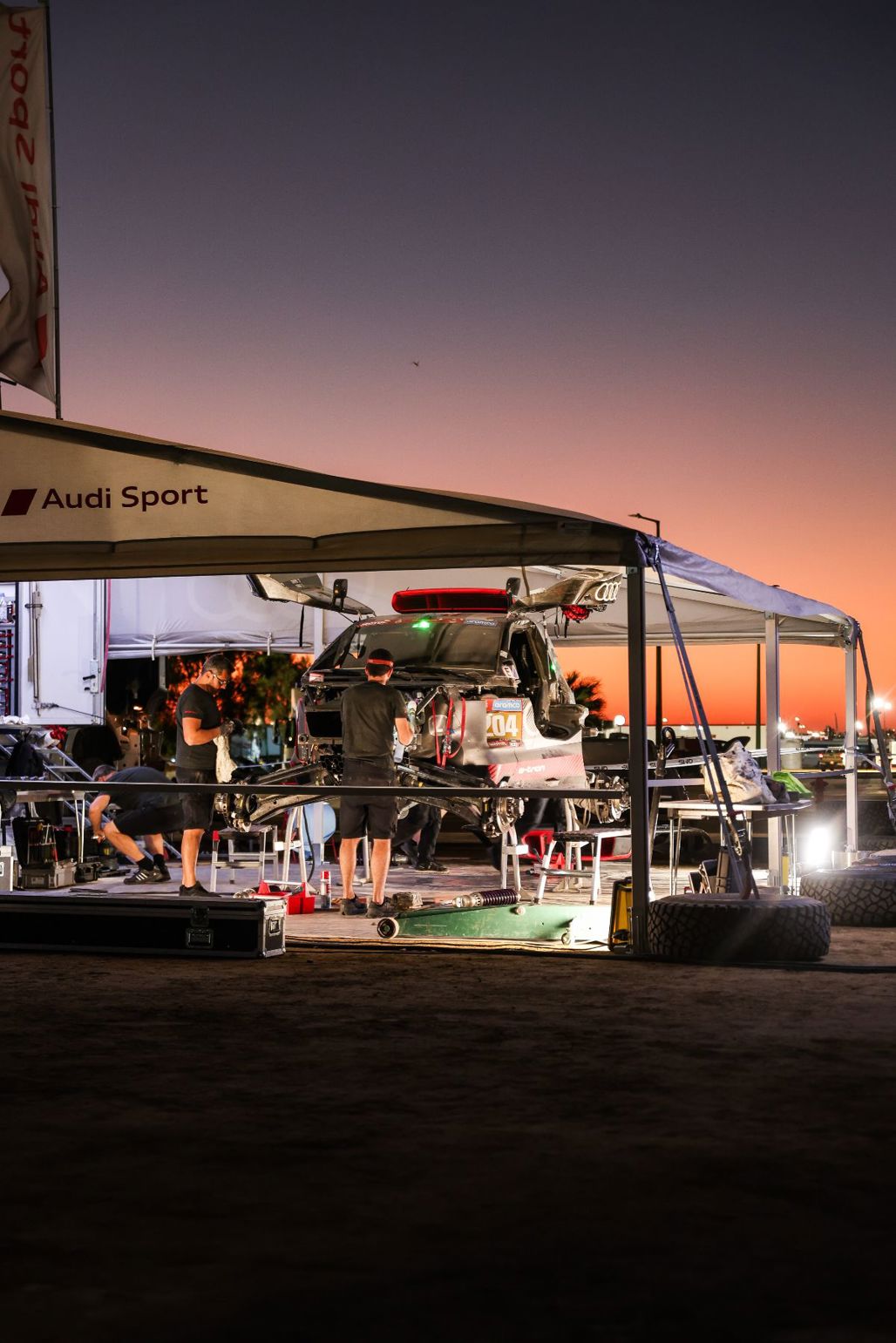Audi's purpose-built RS Q e-tron racer has won the world's toughest desert rally, the Dakar. That's mission accomplished, then: the RS Q e-tron was built as a rolling testbed especially for the race.
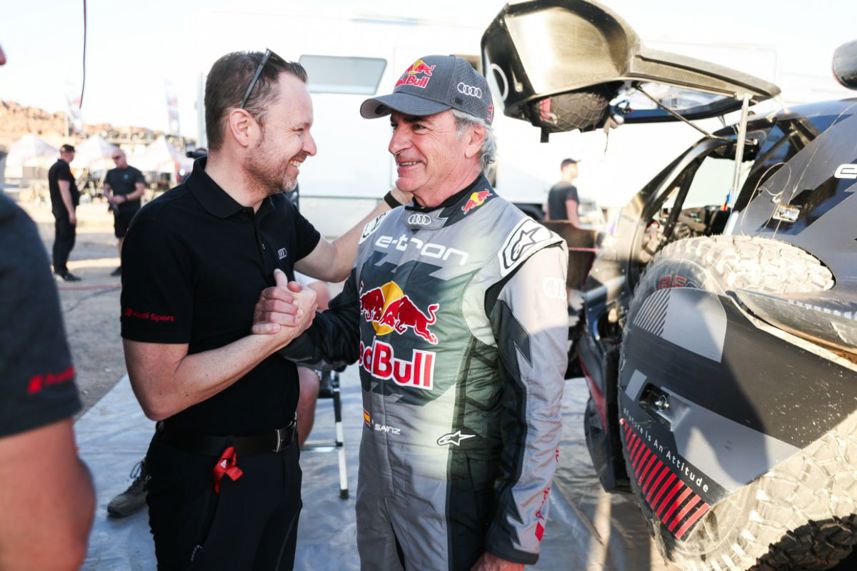
The e-tron was piloted by double World Rally Champion, Spaniard Carlos Sainz (61), partnered with Lucas Cruz (49), a Spanish rally navigator and computer engineer. They completed 7900km and ultimately established a lead of 1h 20min.
Second was Guillaume de Mevius (Toyota), followed by Sebastien Loeb (Prodrive).
In the process of winning the 2024 event, Sainz broke his own record as the oldest Dakar winner.
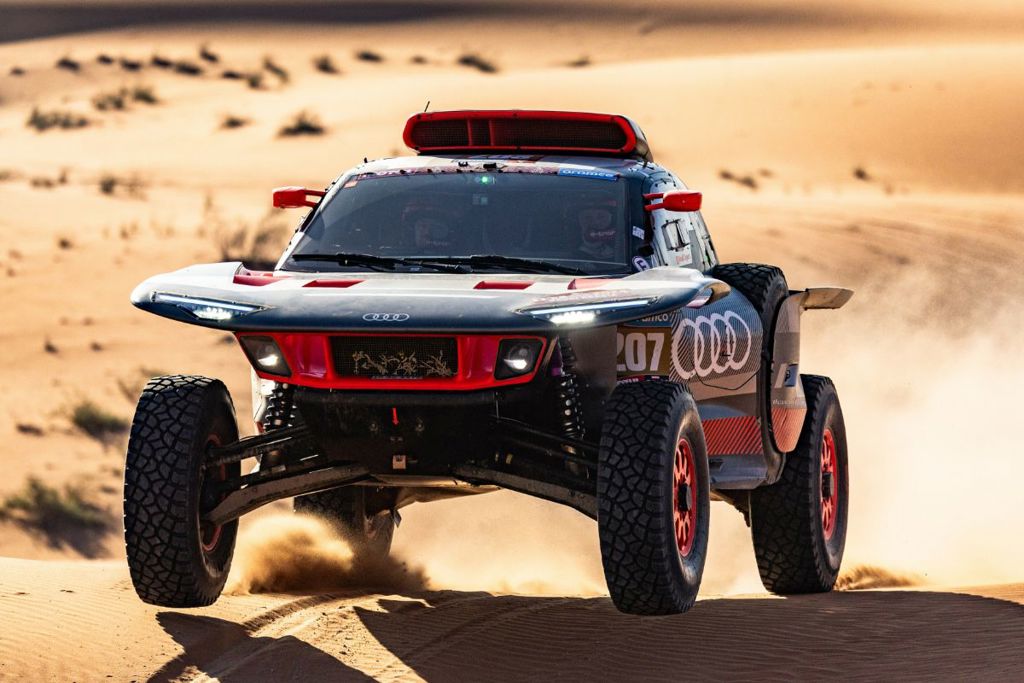
While the RS Q e-tron racer shares its name with Audi's electric production models, there's virtually no relation in appearance, the basic powertrain setup... or all-road ability.
The RS Q e-tron has been in development as a bespoke Dakar car for three years and uses completely electric drive, but employs a battery charged from what Audi calls an "energy converter": that's a 2.0-litre petrol-turbo engine to you and us, sourced from the brand's DTM racers and coupled to a generator from Formula E. It runs on "residual reFuel", which Audi says saves 60 per cent on emissions compared to regular fuel.
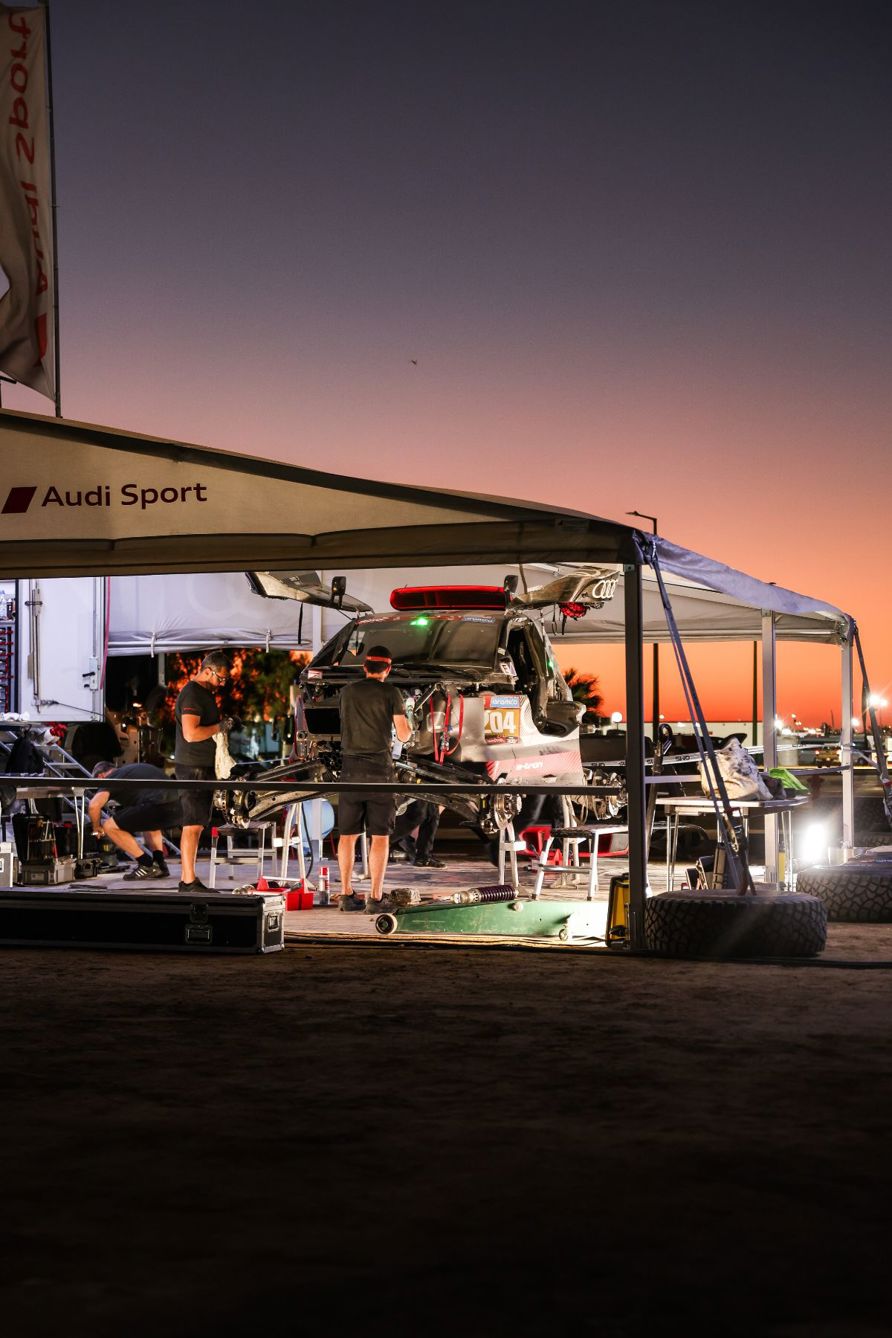
The electric motors (one on each axle) are also from Formula E.
Sainz/Cruz led without interruption from the sixth stage. For the two Spaniards, who finished first in 2010, 2018 and 2020, this is their fourth success with a different brand, including the second from the Volkswagen Group (the others are Mini and Peugeot).
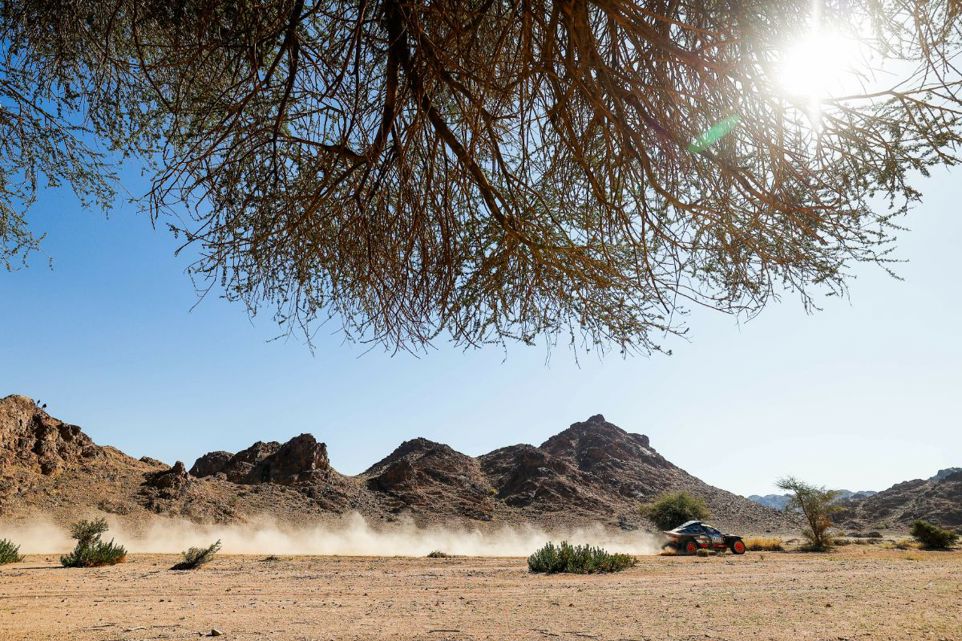
However, Sainz and his experienced co-driver could not be sure of victory until shortly before the end. Sébastien Loeb/Fabian Lurquin from Team BRX threatened to close the gap, right to the point where their car suffered damage on the penultimate day.
The race included daily stages of often more than 400km, two marathon stages with limited or no service, as well as 4600 timed kilometres. There were sharp gravel roads, but also towering chains of dunes in the Empty 2/3 Quarter of the Arabian Peninsula and navigation was often difficult.

